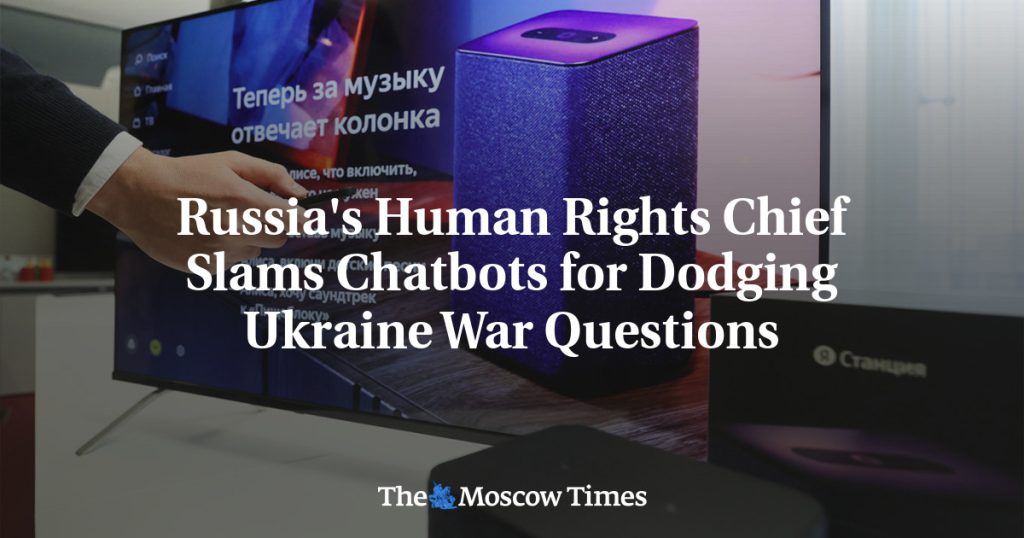Russian tech giants Yandex and VKontakte have come under fire from government officials for their artificial intelligence chatbots avoiding sensitive subjects related to the invasion of Ukraine. These chatbots, Alisa and Marusia, refuse to answer questions about the legal status of eastern Ukraine’s Donetsk and Luhansk regions as well as the massacre of Ukrainian civilians in Bucha. The officials expressed surprise that these chatbots shy away from contentious topics that have multiple perspectives, unlike OpenAI’s ChatGPT which provides a range of opinions on issues.
Yandex’s head of AI development, Alexander Kraynov, explained that the decision to avoid certain answers was made to avoid potential criminal prosecution in a climate of wartime censorship and a crackdown on freedoms in Russia. He stated that providing a wrong answer could have led to a ban on the chatbots entirely. This cautious approach was criticized by Human Rights Council member Igor Ashmanov, who argued that children should not be faced with ideological ambiguity and should be presented with a single answer to sensitive questions. The discussion raised concerns about the implications of limiting multiple points of view in education and information dissemination.
The issue of ideological censorship in chatbots was highlighted following a public statement by Russia’s former president, Dmitry Medvedev, who criticized Yandex’s chatbot for being a “terrible coward”. This criticism was based on the chatbot’s refusal to answer questions about U.S. laws allowing the seizure of Russian assets and the statutes of Ukrainian nationalist Stepan Bandera. The lack of transparency and the avoidance of contentious topics were seen as a failure on the part of the chatbots to engage in a meaningful and open discourse on difficult subjects.
The discussion on “protecting rights and freedoms in a digital age” highlighted the challenges faced by technology companies in navigating political sensitivities and government regulations. The reluctance of chatbots to provide answers on certain topics reflects a wider trend of censorship and control over information dissemination in Russia. The implications of restricting access to multiple perspectives and viewpoints were raised, particularly in the context of children and teenagers who are exposed to these chatbots as sources of information.
The clash between government officials and tech companies over the limitations placed on chatbots in providing information on contentious topics underscores the broader challenges of freedom of speech and censorship in a digital age. The concern over ideological ambiguity and the push for a single narrative on sensitive issues raises questions about the role of technology companies in shaping public opinion and controlling access to information. The debate on the responsibilities of these companies in promoting open and diverse discourse in their chatbots highlights the complex intersection of technology, politics, and freedom of speech in the digital era.















